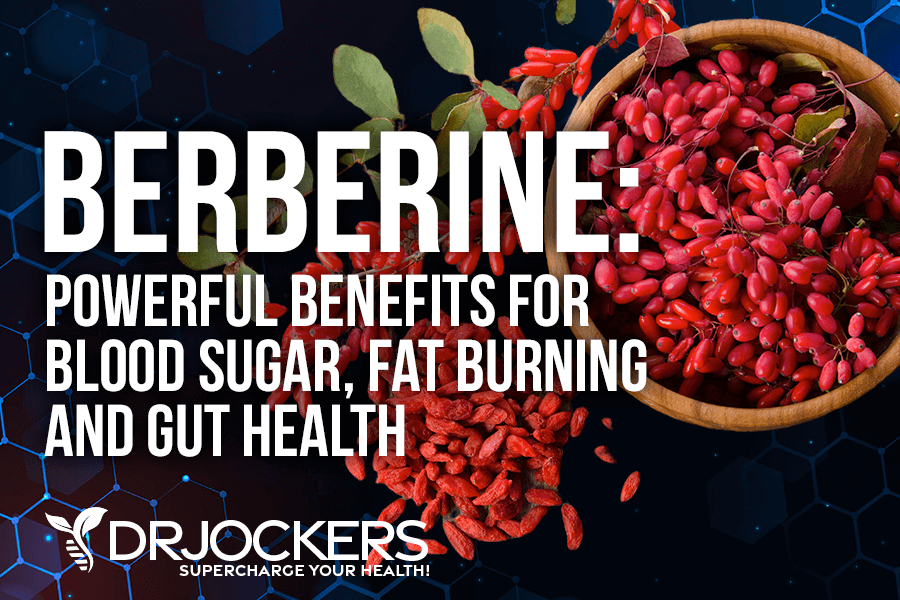 Berberine: Powerful Benefits for Blood Sugar, Fat Burning, and Gut Health
Berberine: Powerful Benefits for Blood Sugar, Fat Burning, and Gut Health
High blood sugar, metabolic issues, obesity, and gut health issues are major health concerns in our modern society. This is where berberine comes in. Berberine is a natural plant compound that has been used by Ayurvedic and Chinese medicine for thousands of years.
Potential benefits of berberine may include reducing inflammation, oxidative stress, blood sugar, diabetes, high blood pressure, high cholesterol, and high triglycerides, improving liver health, circulation, gut health, and supporting fat burning.
In this article, you will learn what berberine is. I will discuss the health benefits of berberine. You will understand how berberine compares with metformin. I will go over the best sources of berberine and dosages. You will understand the potential risks, contradictions, and side effects of berberine. You will learn about the benefits of combining berberine with alpha lipoic acid. I will also share my favorite supplement with Berberine.
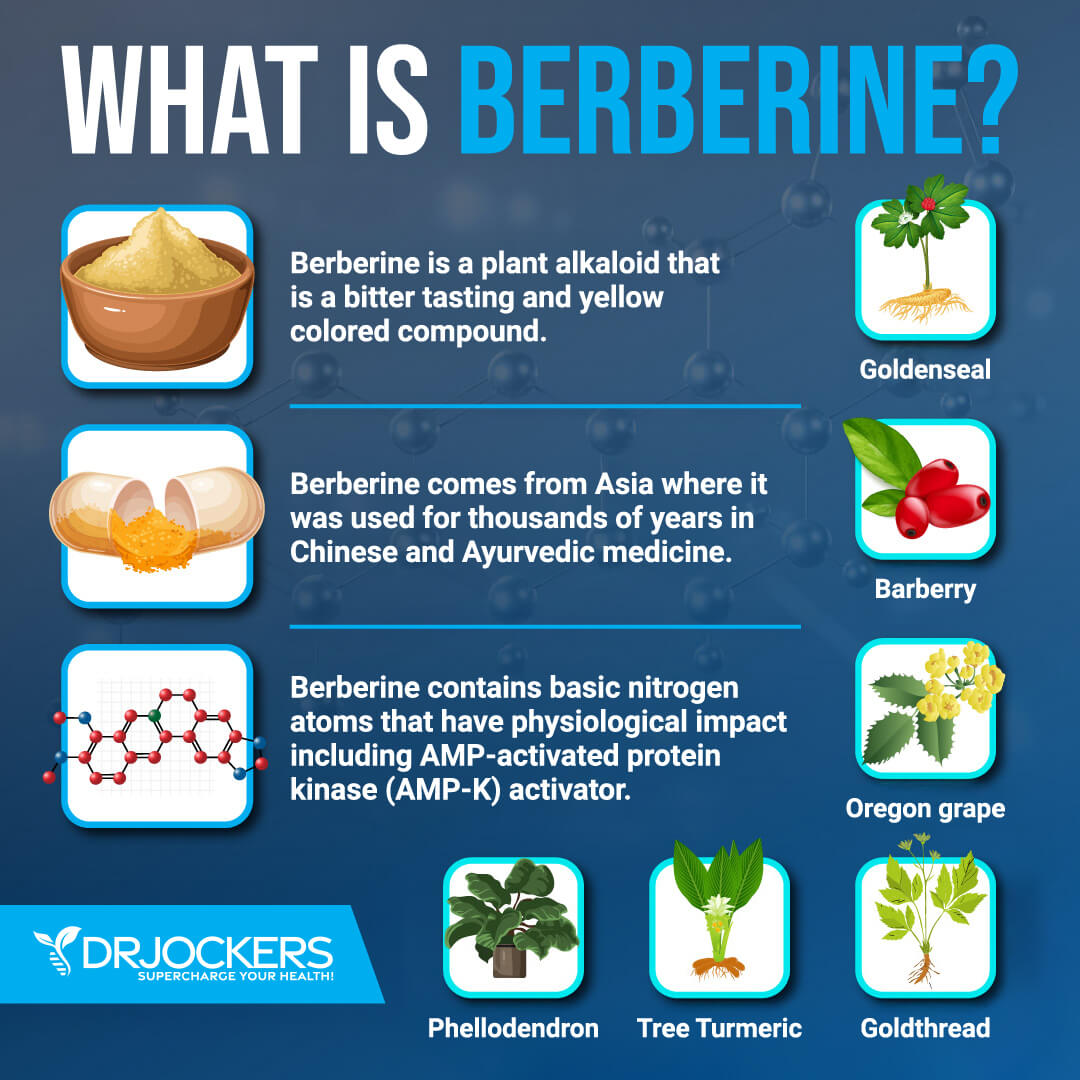
What is Berberine?
Berberine hydrochloride or berberine is a natural compound found in various plants, including the European barberry, Oregon grape, goldthread, tree turmeric, and phellodendron. It has a yellow color and a bitter taste. It has been used by Ayurvedic and Chinese medicine for thousands of years for various ailments (1).
Potential benefits of berberine may include reducing inflammation, oxidative stress, blood sugar, diabetes, high blood pressure, high cholesterol, and high triglycerides, improving liver health, circulation, gut health, and supporting fat burning. In this article, I also discussed how it may be a safer alternative to Ozempic. Berberine is generally safe, though it may cause an upset stomach or nausea in some.
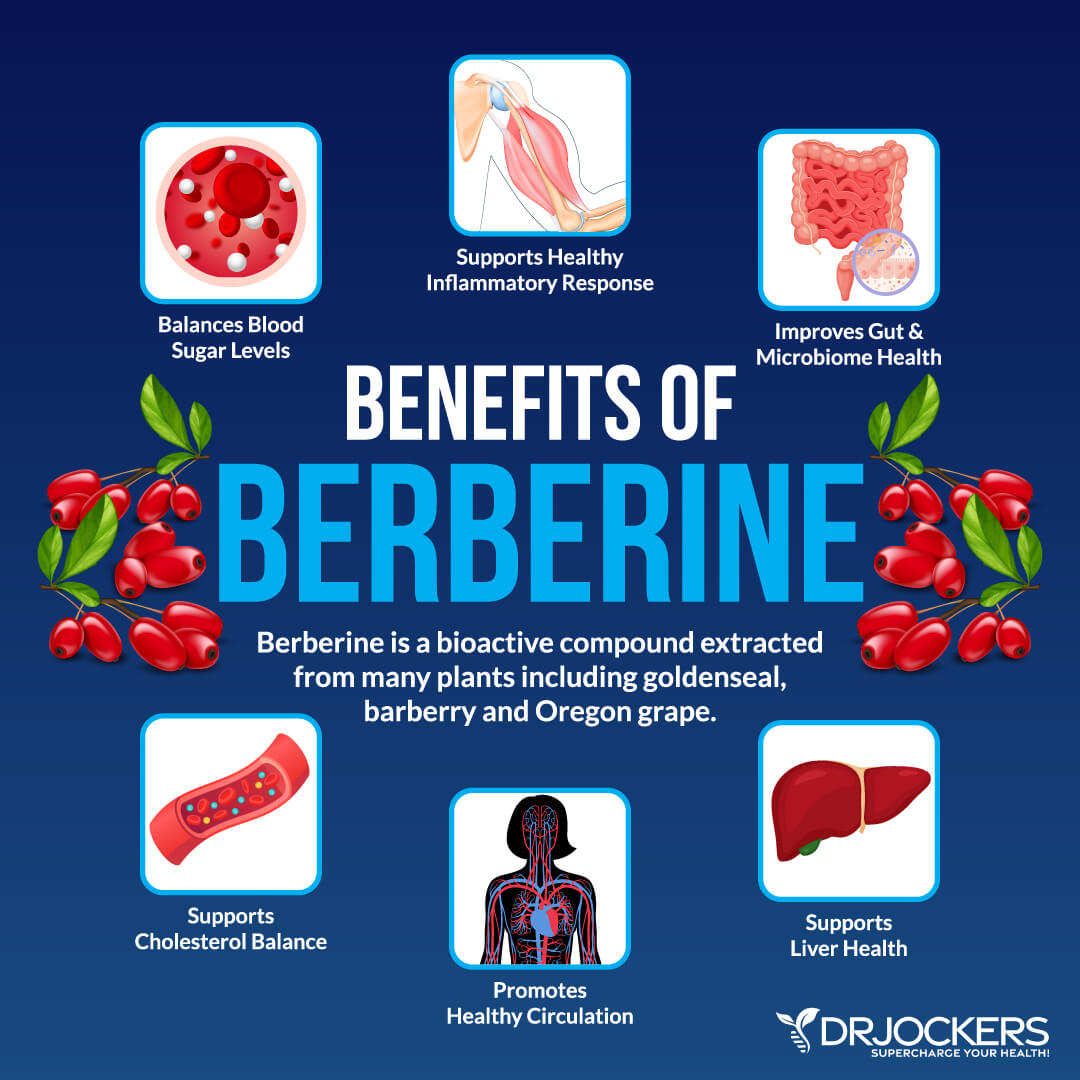
Health Benefits of Berberine
There are many health benefits of berberine. Let’s look at them one by one.
Balances Blood Sugar Levels
One of the most sought-after health benefits of berberine is its potential to balance blood sugar levels. It may be a great supplement for reducing the risk of blood sugar fluctuation, insulin resistance, pre-diabetes, and type 2 diabetes or aiding the treatment of these conditions. According to a 2019 literature review and meta-analysis published in Endocrine Journal, berberine may be more effective than placebo when it comes to decreasing blood sugar levels (2).
Researchers found that combining berberine with blood-sugar-lowering medications may be more effective than using the same drugs without berberine. Thus, berberine may be an option for those who are and those who are not currently taking medication for blood sugar issues.
Medications don’t come without risks. This is when berberine can be truly helpful. According to 2014 research published in Biochemistry and Cell Biology, berberine may be a good option for the treatment of diabetes in those who are unable to use current anti-diabetes medications due to kidney problems, liver failure, or heart disease (3).
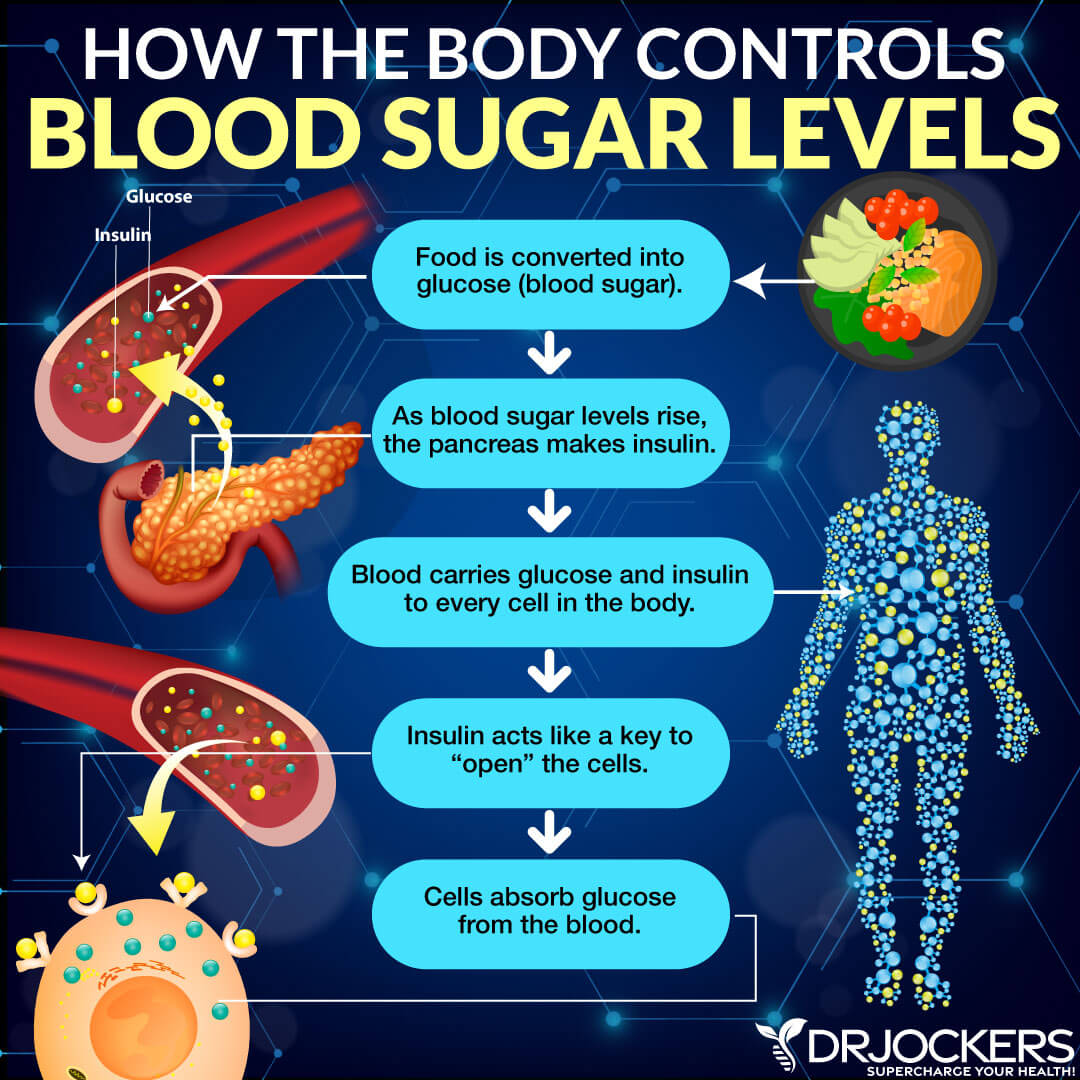
A 2015 review published in the Journal of Ethnopharmacology has found that when combined with lifestyle changes, berberine may be particularly effective and better than lifestyle changes alone when it comes to decreasing blood sugar (4).
So how does this work? Why is berberine so good for your blood sugar levels? According to a 2006 article published in Pharmacology and Therapeutics, berberine also activates AMP-K (AMP activated kinase) which is a crucial cellular protein that acts as a sensor of energy levels within the cell (5).
This may allow your body to better regulate the use of blood sugar, reduce the risk, and support the treatment of diabetes and related health problems, including high cholesterol and obesity.
According to a 2020 meta-analysis published in Clinical Nutrition ESPEN, berberine may help to improve metabolic parameters and reduce body weight and obesity without increasing liver enzymes (6). However, we still need some bigger double-blind studies on the safety and efficacy of berberine.
I will get into the potential risks and side effects later, however, it’s important that you speak with your healthcare professional before using berberine for blood sugar and diabetes.
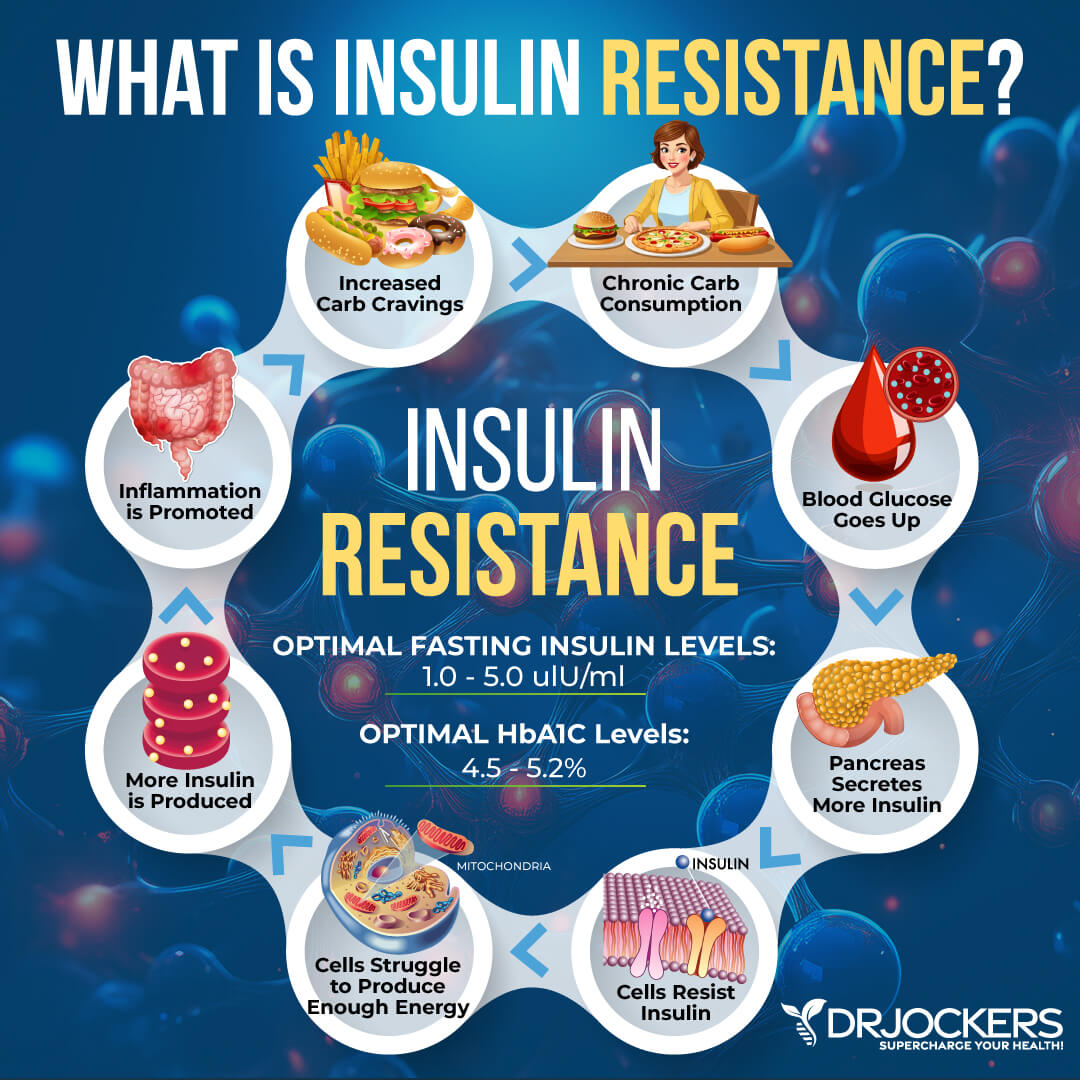
Turns on Fat Burning
Another popular health benefit of berberine is fat burning and weight loss. As mentioned in the previous section, according to a 2020 meta-analysis published in Clinical Nutrition ESPEN, berberine may help to lower body weight and obesity and improve metabolic parameters (6).
This is important because obesity is a risk factor for chronic inflammation, high blood pressure, heart disease, high cholesterol, diabetes, and other health issues.
According to a 2017 review published in the Iranian Journal of Basic Medical Sciences, using 750 milligrams (mg) of barberry, which contains high amounts of berberine, twice a day for 3 months helps to result in significant weight loss (7).
A 2018 review published in Diabetes, Metabolic Syndrome, and Obesity has found that berberine may have pharmacological activities and positive effects on obesity risk factors by suppressing adipocytes, regulating glucose metabolism by reducing insulin resistance, and boosting insulin secretion (8). It may also show some antihyperlipidemic, antihypertensive, and endothelial-protecting effects.
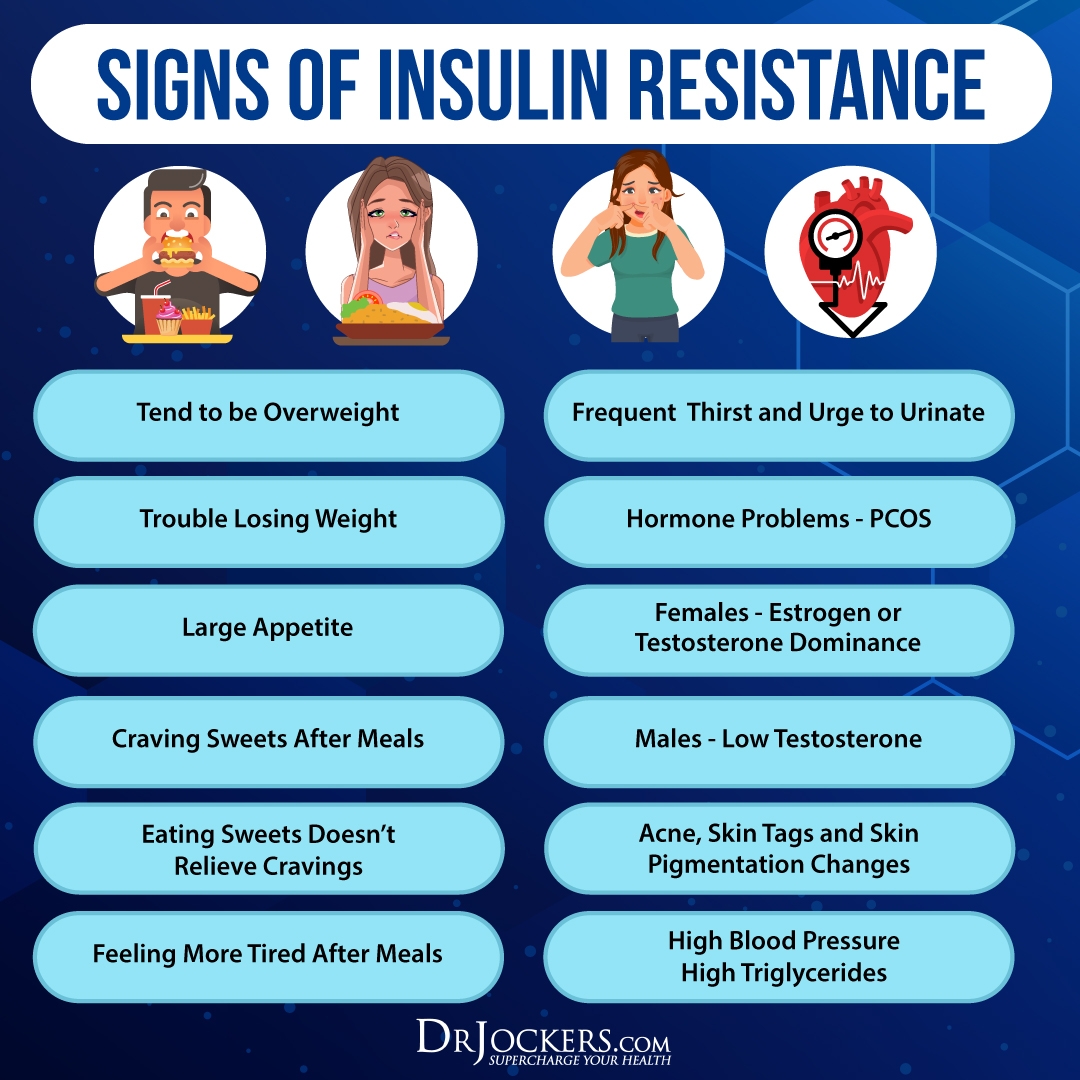
According to 2018 research published in the American Journal of Translational Research, berberine may also help to activate brown adipose tissue (9). This brown adipose tissue supports your body to create body heat from food. Increased activation of the brown adipose tissue may help to reduce obesity and metabolic syndrome.
While I will get into this topic later, it’s worth mentioning that according to 2015 research published in Science Reports, berberine may work similarly to metformin, a medication commonly prescribed for obesity (10). It may also have the ability to change the gut microbiome, which can help to improve diabetes and reduce obesity as well.

Reduces Oxidative Stress & Inflammation
Reducing oxidative stress and inflammation is another important health benefit of berberine. Chronic inflammation is the root cause of most modern-day chronic health issues, and oxidative stress may also increase chronic inflammation and the risk of cancer and other diseases.
According to 2022 research published in the Journal of Food Biochemistry, berberine offers anti-inflammatory effects (11). It helped to downregulate mRNA and protein expression of inflammatory biomarkers.
This may help to lower the risk of inflammatory health issues and support the treatment of diabetes. According to a 2018 study published in Frontiers in Pharmacology, berberine may help to reduce inflammation and oxidative stress in diabetes, improving treatment (12).
Moreover, a 2019 review published in Frontiers in Pharmacology has found that berberine may have cancer-inhibitory effects on prostate, colorectal, ovarian, cervical, liver, and lung cancer (13). According to a 2015 study published in the Journal of Ethnopharmacology, berberine may help to decrease the progression and life cycle of cancer cells (14).
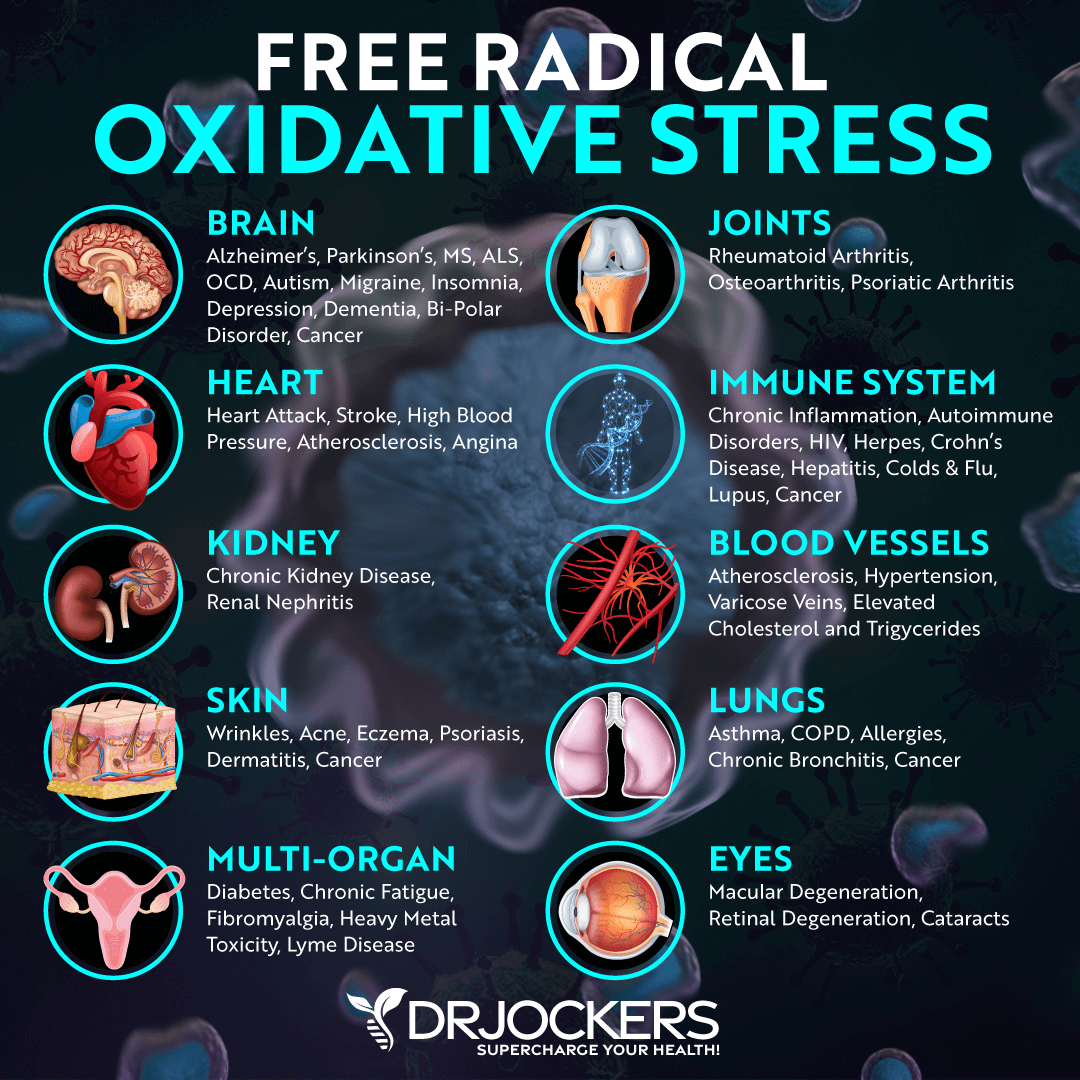
Improves Cholesterol & Triglycerides
Another health benefit of berberine is improving cholesterol and triglyceride levels. This is important because high triglycerides and high cholesterol may contribute to the increased risk of heart disease and stroke.
A 2017 review published in the Iranian Journal of Basic Medical Sciences has found that berberine may help to lower cholesterol, according to both human and animal studies (15). Berberine may help to decrease LDL, also known as bad cholesterol, and improve HDL or good cholesterol.
A 2015 review published in the Journal of Ethnopharmacology has found that when combined with lifestyle changes, berberine may be particularly effective for improving cholesterol levels and may be more effective than lifestyle changes alone (4). A 2017 study published in Oncotarget has also noted that the effects of berberine on cholesterol may be similar to metformin but without the side effects of the medication (16).
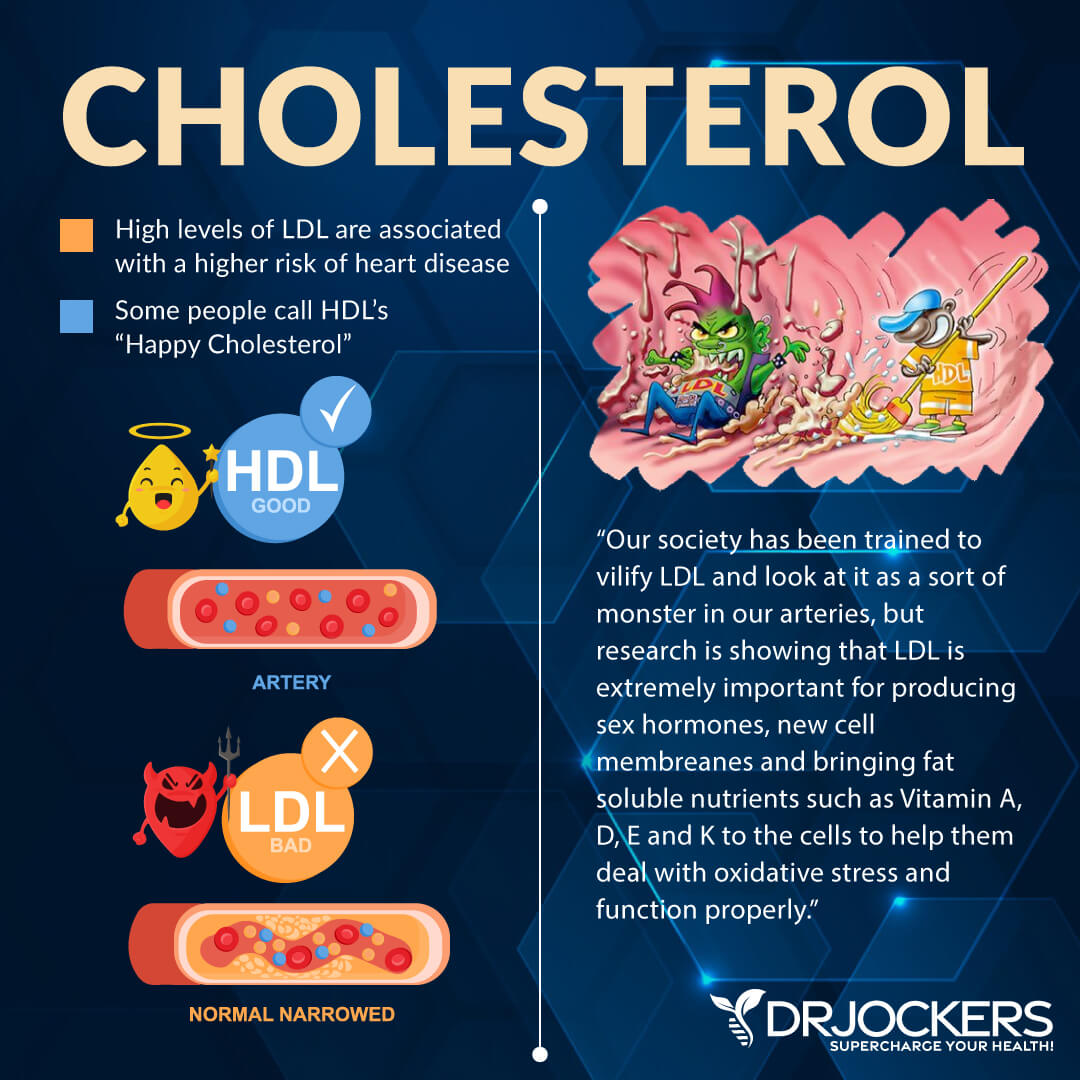
Promotes Healthy Circulation
Another health benefit of berberine is promoting healthy circulation and improving heart health. Improving cholesterol and triglyceride levels, as mentioned earlier, is critical for your heart health, so is lowering inflammation, oxidative stress, and obesity.
A 2015 review published in the Journal of Ethnopharmacology has found that when combined with lifestyle changes, berberine may be particularly effective for reducing blood pressure, even more effective compared to just lifestyle changes alone (4).
A 2015 animal study published in Clinical and Experimental Hypertension has found that berberine may also delay the onset of or reduce the risk of high blood pressure (17). It may also decrease the severity of high blood pressure if it develops.
A 2018 review published in Chronic Diseases and Translational Medicine has found that berberine may help to dilate the blood vessels and reduce blood pressure (18). It may help to improve relaxation by acting on the endothelium and the vascular smooth muscle underneath. It may also have anti-platelet effects and antiarrhythmic effects. Overall, berberine may offer some incredible benefits for circulation and heart health.

Improves the Gut Microbiome
A study published in Science Reports in 2015 demonstrated that berberine may work similarly to metformin, a medication commonly prescribed for obesity (10). It may also have the ability to change the gut microbiome, which can help to improve diabetes and reduce obesity as well.
A 2021 review published in Frontiers in Cellular and Infection Microbiology has found that it may be beneficial for the gut microbiome, which may help to improve insulin resistance, lipid levels, and other health factors (19).
A 2020 study published in Pharmacological Research has found that berberine’s beneficial effects on the gut microbiome may be one of the reasons behind its positive effects on diabetes, inflammation, cancer, and other health issues (20).
Berberine may have antibacterial effects that may help to reduce harmful bacteria in your gut and allow your body to improve balance and have more healthy bacteria. A 2014 study published in Global Advances in Health and Medicine has found that berberine may have antibiotic effects and may help to improve SIBO safely (21).
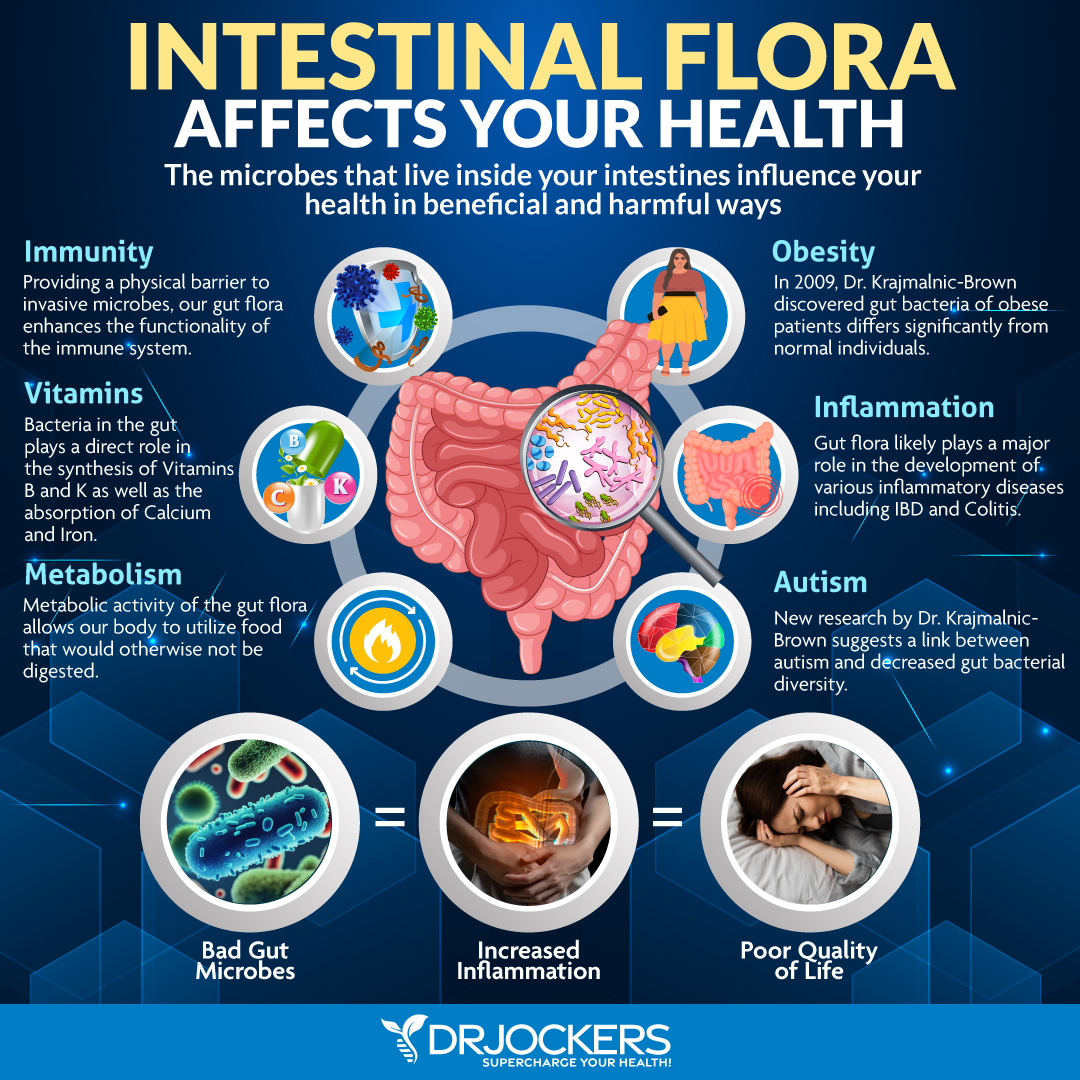
Supports Liver Health
According to a 2020 meta-analysis published in Clinical Nutrition ESPEN, berberine may help to improve metabolic parameters and reduce body weight and obesity without increasing liver enzymes (6). It may even help to improve liver health.
A 2016 study published in Evidence-Based, Complementary, and Alternative Medicine has found that berberine may help to reduce triglycerides, blood pressure, and blood sugar levels, which also helps to support liver health and lower the risk of liver damage from diabetes, hepatitis, or other issues (22).
A 2015 study published in BMC Endocrine Disorders has also found that berberine may offer anti-dyslipidemic and anti-hyperglycemic effects and may help to improve glucolipid metabolism (23). These factors are common root issues behind fatty liver disease, thus, by reducing the risk of these underlying issues, berberine may lower the risk of fatty liver disease.
Comparing Berberine with Metformin
Berberine is often touted as a natural alternative to metformin. I mentioned earlier that 2015 research published in Science Reports has found that berberine may work similarly to metformin, a medication commonly prescribed for obesity (10).
It may also have the ability to change the gut microbiome, which can help to improve diabetes and reduce obesity as well. A 2017 study published in Oncotarget has also noted that the effects of berberine on cholesterol may be similar to metformin but without the side effects of the medication (16). Let’s talk more about what metformin is and how metformin and berberine compare.
Metformin is an oral prescription medication that is commonly used for patients with type 2 diabetes. It is usually used as the first treatment option before reaching for insulin treatment. Why?
Metformin helps to reduce blood sugar levels by decreasing insulin resistance, allowing your body to absorb and use sugar more effectively, reducing sugar absorption in the intestine, and improving glucose uptake in both the adipose tissue and the skeletal muscle. One risk of metformin, similar to other drugs for diabetes, is that it may increase the risk of low blood sugar or hypoglycemia. However, it is still considered effective and generally safe.
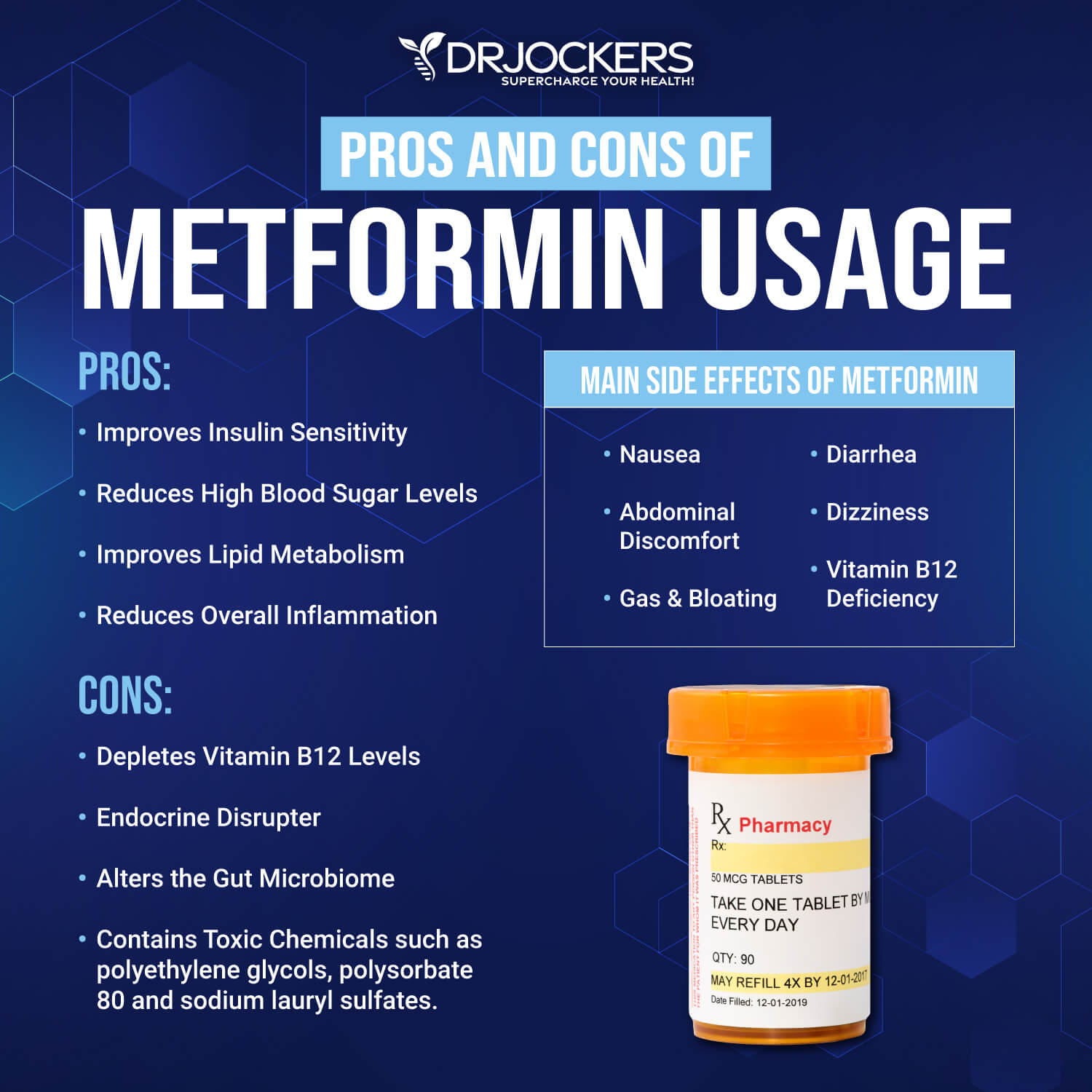
Berberine, on the other hand, is an herbal natural supplement that may also help to improve blood sugar levels, diabetes, metabolic syndrome, and other health conditions, as indicated by the earlier section explaining the health benefits of berberine. Berberine and metformin have similar benefits when it comes to glucose metabolism. So, what’s the difference?
Metformin is FDA-approved and regulated for diabetes. There are also alternatives to metformin that are also FDA-approved. Berberine, on the other hand, is a supplement therefore it’s not regulated by the FDA. Since everyone can sell supplements and they are not regulated, berberine supplements on the market may not be equal. Moreover, there are more clinical studies on metformin than berberine.
Though current clinical evidence suggests that berberine is safe and effective, without regulation, scientific evidence can’t vouch for every supplement. We also need even more research to fully understand berberine. Buying quality supplements is critical, whether it’s berberine or something else.
A 2008 study published in Metabolism looked at the effects of berberine and 0.5 grams of metformin three times a day in participants with diabetes (24). They found that both berberine and metformin had similar blood sugar-reducing effects.
Berberine helped to reduce hemoglobin, fasting blood sugar from postprandial blood glucose, triglycerides, and cholesterol. Researchers concluded that berberine may be a good candidate for treating diabetes.
A 2021 review and meta-analysis published in Health has also looked at the benefits of berberine and metformin (25). They found that just like metformin, berberine also has hypoglycemic effects. They noted that using berberine and metformin together may be a safe and effective treatment strategy for type 2 diabetes.
Most studies suggest that berberine becomes effective after about 3 months of use in most cases, though in some, we may observe a blood sugar reduction within a month. Metformin, on the other hand, is much faster. Full benefits become apparent within 4 to 5 days. Many studies suggest that combining metformin with berberine may be a great way to go. This strategy can help to replace metformin partially, even if you will still need the medication.
Of course, it’s important that you talk to your healthcare professional and only reduce or stop metformin and/or start berberine supplementation with the guidance of your doctor if it’s applicable to your situation. Everyone’s body and health situation is different. Both metformin and berberine may cause some gastrointestinal side effects in some individuals.
Metformin may cause gas, bloating, abdominal pain, diarrhea, nausea, and a loss of appetite. Berberine may cause abdominal pain, constipation, diarrhea, and flatulence. Using milk thistle along with berberine may support the absorption of berberine. Berberine may still be easier to tolerate and side effects are less likely. Again, talk to your doctor to see what’s right for your situation.
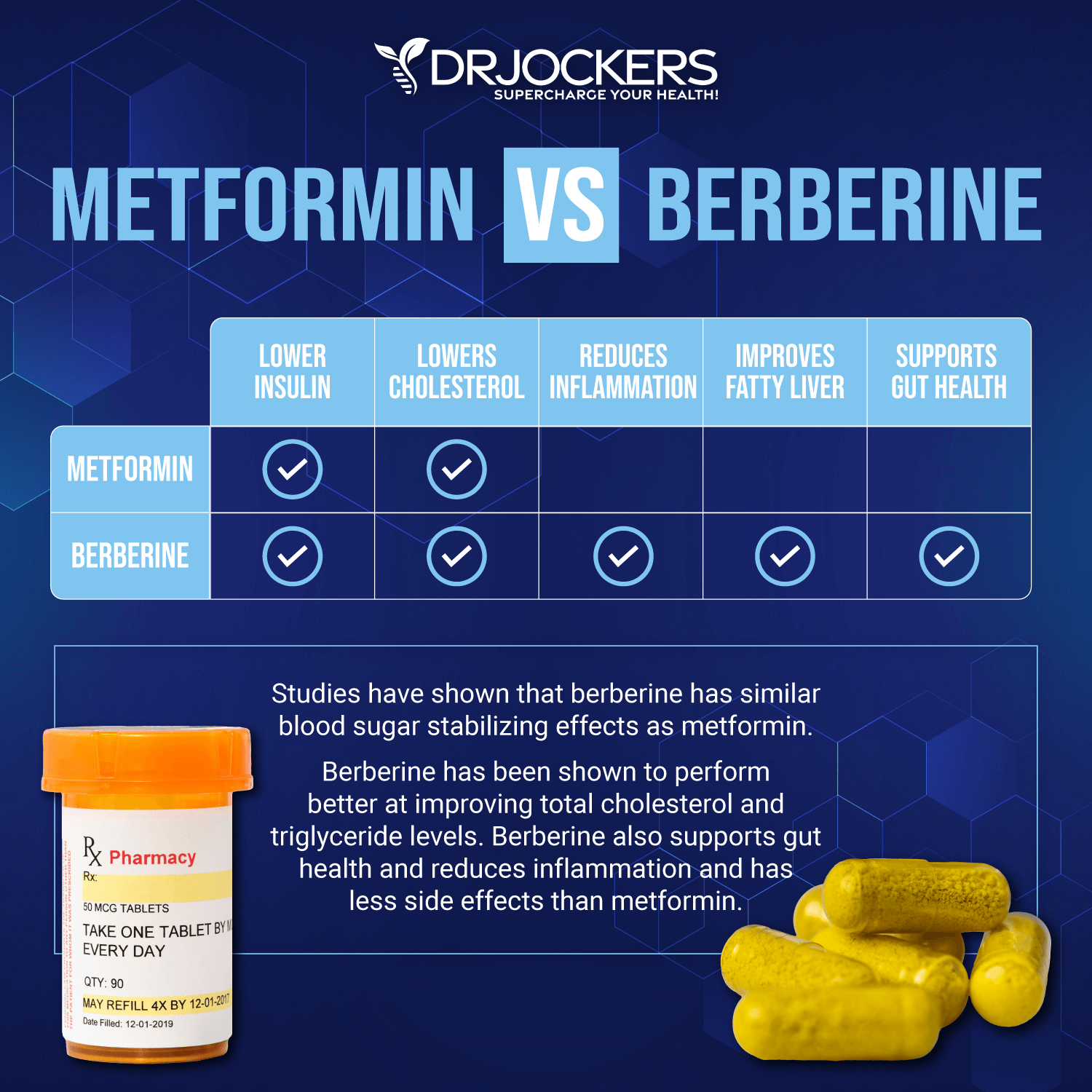
Best Sources of Berberine and Dosages
Berberine is a supplement, most commonly found in the form of berberine HCL in health food stores, supplement shops, and online. When buying berberine, shop from a reputable brand. Don’t confuse berberine with berberol (a brand name with milk thistle and tree turmeric), berberrubine (a metabolite), or piperine (black pepper extract). They sound similar but are not the same.
Berberine has a short half-life. It’s generally recommended to take berberine in doses, for example, two to three times a day, to help with stable blood sugar levels. Most studies have looked at dosages between 800 to 1,500 milligrams, which seems to be a safe and effective range. The most common dosage is 400-500 milligrams, 2-3 times a day, for a total of 800 to 1,500 milligrams a day.
Always take it with or shortly after a meal to experience the full benefits of your blood sugar and lipid level. Higher dosages may lead to an upset stomach, pain, or diarrhea. If you are experiencing these side effects, you may need to lower the dose. Spreading your intake across the day in multiple doses can also help to reduce these side effects. Of course, always work with your health practitioner to figure out the right dose.
Finally, some people may experience skin health benefits. When used directly on the skin, berberine may help to improve burns, and bacterial infections, like trachoma, fungal infections, and protozoa that affect the skin. Check with your practitioner if topical treatment is right for you.
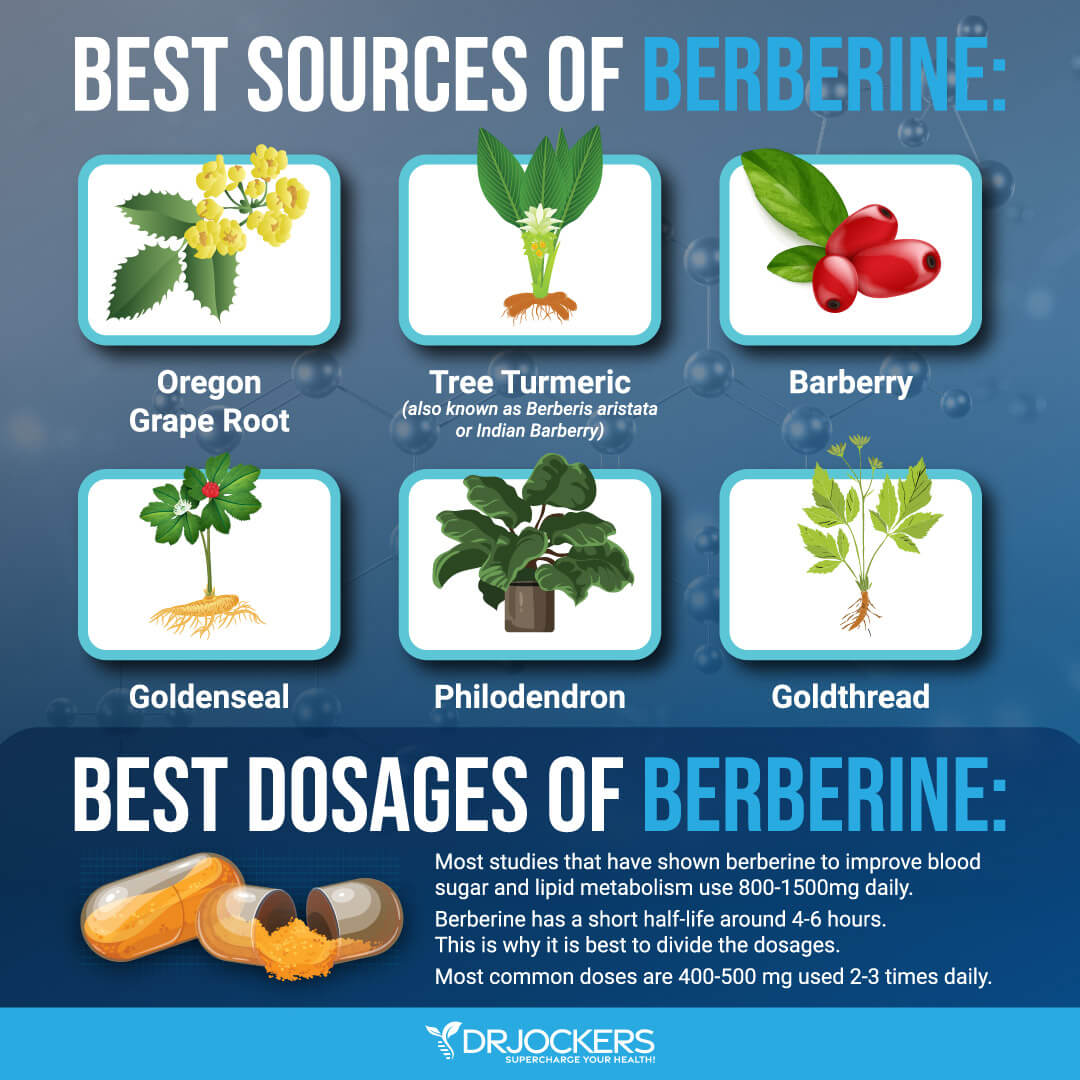
Potential Risks, Contraindications and Side Effects
According to the National Center for Complementary and Integrative Health (NCCIH), berberine or goldenseal supplements with berberine generally don’t cause adverse effects in adults in the short term. We don’t have enough information regarding long-term effects and safety, especially after one year of use (26).
Side effects of berberine may include digestive issues, such as an upset stomach, constipation, nausea, diarrhea, and flatulence. It may also cause headaches in some.
Animal studies have also found some cases of diarrhea, vomiting, nausea, gastric ulcers, muscle tremors, reduction of white blood cells, and liver or kidney enlargement, however, this depended on the animal and the length of use (27). All of these side effects are extremely rare, and the supplement has been used safely by thousands of functional health practitioners and millions around the world for over 25 years.
It’s important to start slowly with the guidance of a healthcare provider. If you notice an allergic reaction, stop it completely. If you have side effects, you may need to reduce the dose, change the brand, or stop. Your doctor can guide you with that.
Berberine is not recommended for those who are pregnant or breastfeeding, as it may increase the risk of jaundice and kernicterus. If you are taking any medications for hypoglycemia, it’s important to talk to your doctor, as berberine may interact negatively with your medication.

Combining Berberine with Alpha Lipoic Acid
Alpha lipoic acid or ALA is an antioxidant (28). It is naturally made in your body. It’s also found in food and supplements. As a supplement, it’s used to manage various chronic diseases related to oxidative stress and inflammation, including diabetic neuropathy. It may also be used to slow down metabolic syndrome onset and progression.
Alpha lipoic acid and berberine may both help to improve insulin sensitivity and regulate blood sugar levels. They may both help to reduce inflammation and improve cholesterol.
A 2023 review published in Nutrients has found that alpha lipoic acid may be great for glucose metabolism, insulin sensitivity, antioxidant benefits, and diabetic neuropathy (29). Combining the two may be a great idea for blood sugar control. Many supplements take advantage of the benefits of both compounds.
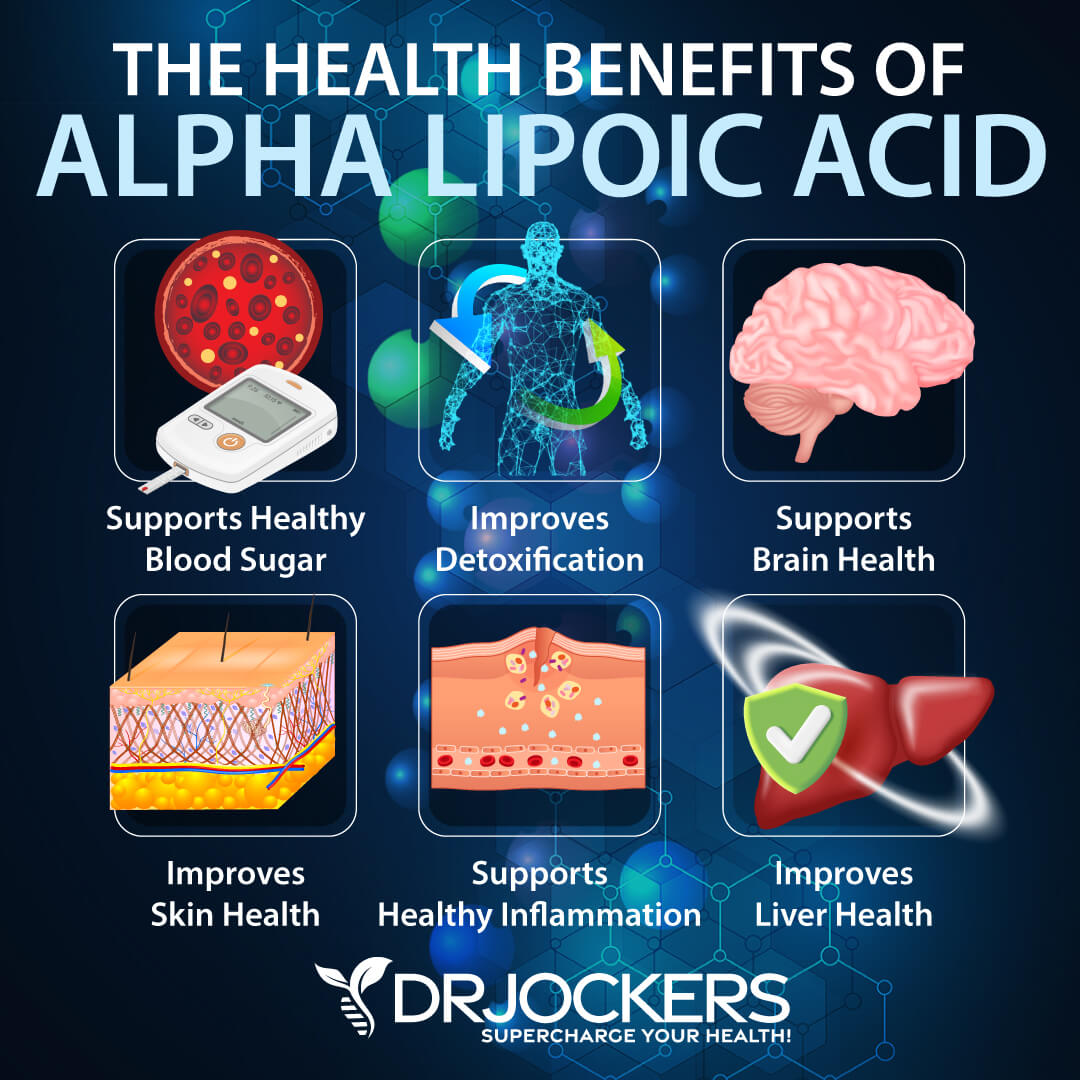
Introducing Glycemic Synergy
To experience the health benefits of berberine and alpha lipoic acid, I recommend Glycemic Synergy. Combined, berberine and ALA may provide synergistic properties to help promote healthy metabolism.
Glycemic Synergy may help support normal blood sugar metabolism, healthy cardiovascular function, normal lipid metabolism, antioxidative status, and cellular health. Take one capsule per day with a meal or as directed by your healthcare practitioner.
Another great berberine product is Sugar Support which is a unique, synergistic formula that combines standardized herbs and other botanicals that are shown to support healthy blood sugar through various mechanisms, including 500 mg of berberine and clinical doses of cinnamon, corosolic acid from banaba, isoflavones from kudzu, and ginsenosides from ginseng.
Final Thoughts
High blood sugar, metabolic issues, obesity, and gut health issues are major health concerns in our modern society. Berberine can help.
Berberine is a natural plant compound that may help to improve your health by reducing inflammation, oxidative stress, blood sugar, diabetes, high blood pressure, high cholesterol, and high triglycerides, improving liver health, circulation, gut health, and supporting fat burning. I recommend following my tips and trying the Glycemic Synergy to improve your health with berberine.
If you want to work with a functional health coach, I recommend this article with tips on how to find a great coach. Our website offers long-distance functional health coaching programs. For further support with your health goals, just reach out and our fantastic coaches are here to support your journey.
Inflammation Crushing Ebundle
The Inflammation Crushing Ebundle is designed to help you improve your brain, liver, immune system and discover the healing strategies, foods and recipes to burn fat, reduce inflammation and Thrive in Life!
As a doctor of natural medicine, I have spent the past 20 years studying the best healing strategies and worked with hundreds of coaching clients, helping them overcome chronic health conditions and optimize their overall health.
In our Inflammation Crushing Ebundle, I have put together my very best strategies to reduce inflammation and optimize your healing potential. Take a look at what you will get inside these valuable guides below!
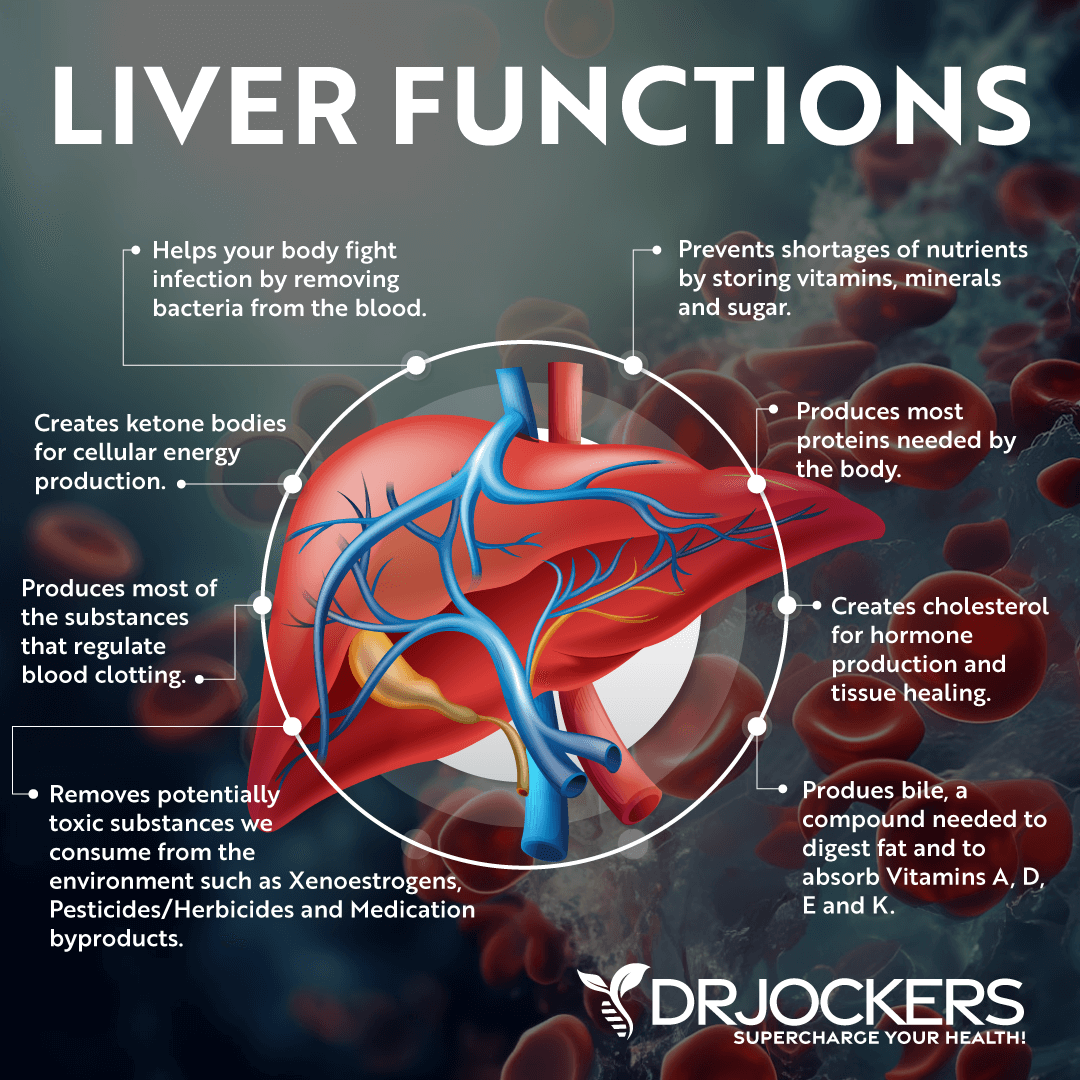





High Dr Jockers. I was wandering if you could help me with a question quickly. I have type to, but I wanted to know wh a t causes my urine to smell. It happens a lot. Please, cam you let me know please.
Great article. Berberine and Butyrate make a great one two punch for digestive health.
R-ALA with Berberine has my A1C in the mid-normal range now. Doctor has no idea of why? LOL
And what do you think about myo-inositol?
Hi Dr Jockers
Can I take berberine with mounjaro?
Can I take mounjaro with berberine?
Super information!
There are many benefits of pomegranates. Would it be possible to give your views?
Best regards,
Dr. Anna Rajab
I found this article to be very informative. Thank you for explaining each component, it was most helpful to me. I have been seeking a more natural course to address my health issues inflammation, stress, diabetes, blood pressure, and cholesterol. Now I have a possible solution!
Thank you for this article, it was extremely informative!
Could you suggest some good companies to purchase quality supplements?